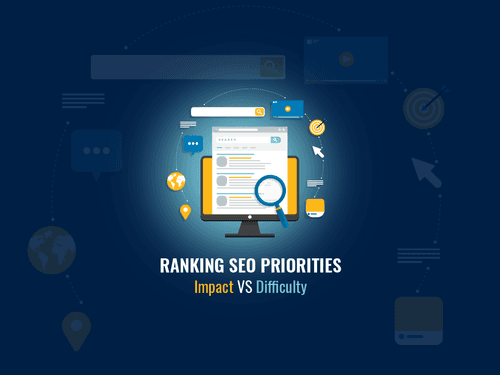Whether it’s Bridgerton spoilers or a new iPhone feature shared illicitly across social media, we love a good information leak. That’s what we got in May 2024 when there was a significant leak of internal Google documents relating to their (very official sounding) Google Search API Content Warehouse. In other words, Google may have accidentally leaked information on all (or most) of their SEO ranking factors.
This was a bit more like a flood than a leak, though, with the event making big waves in the SEO (search engine optimization) community. Read on to learn what the leaked info was, what Google said about it, and how you can use this new knowledge to enhance your SEO strategy.
What Google Said About the Leak
While Google did confirm the documents’ authenticity, they cautioned against drawing inaccurate conclusions from the potentially outdated or incomplete information. In other words, as we dive into the details, take everything with a grain of sea salt.
What the Leak Revealed
The new documents gave us a glimpse into Google’s search ranking factors, including over 14,000 factors or “attributes.”
In Gemini’s* own words, attributes refer to HTML tag attributes used in website development. They provide additional information about an HTML element of a webpage. For instance, webpage code uses a tag called <a> for creating links, and that tag has an “href” attribute that specifies the URL to which the link points. These attributes help Google decide how to rank pages in their search results. Almost 8,000 of the 14,000 leaked attributes relate to Google Search results.
*Note: Gemini is Google’s AI software (previously known as Bard).
What the Leaked Attributes Mean for SEO
There’s a deluge of chatter out there about this leak, so we’ve summed up the key takeaways.
-
User experience is still king for Google
User experience, also known as UX, remains a top priority for Google. Everyone’s favorite search engine looks at how long users spend on webpages and click-through rates (CTRs) when ranking pages. For example, if a user clicks through to your page in search results only to turn around and head right back to Google, you’re likely to see a drop in your rankings. -
Google may prioritize whitelisted sources
By “whitelisted,” we mean sources like websites and publishers that Google deems trustworthy and reliable. These sources likely go through a specific evaluation process through Google or may already have a strong reputation in their field. -
Bad backlinks could hurt your rankings
IYKYK, backlinks are kind of a big deal in SEO. If you don’t know, we’ve got your back—a backlink is a link placed on another site that links back to a page on your site. When backlinks to your site appear on credible websites, that authority is passed to you in Google’s eyes, helping your pages rank higher. Per the leak, however, if your site has tons of backlinks from low-quality or irrelevant websites, it could harm your rankings. -
Unlinked mentions of your brand might be helpful too
Yes, backlinks are a key SEO tactic, but the recent leak leads experts to believe that there’s still value in a mention of your company or brand even if it’s not formally linked to your website—aka, plain text mentioning your organization could be a green flag for Google. -
Page titles have sitewide implications
The little pieces of text that appear first in search results (and in the tab of your web browser), called title tags or page titles, are more important than you may have previously thought. Optimizing title tags can indirectly benefit the rest of your website, even boosting the visibility of pages that weren’t updated with new page titles. -
Google may value author credibility
Like prioritizing “whitelisted” sources, Google may evaluate your own authors and rank pages based on how legit it views your authors to be. -
Outgoing links may only be used to assess spam
Linking to outside sources in your website content (often used when you want to attribute a quote or statistic to the original author) doesn’t really benefit you in SEO ranking terms. However, if you do choose to link to spammy or low-quality sites—or even worse, your third-party links are broken—that can pull your rankings down.
What the Leak Doesn’t Tell Us
There are some holes in this leak … here’s what Google left out.
-
How important individual attributes are compared to others
Yeah, Google leaked kind of a lot of attributes. What is unknown here, though, is how Google ranks the importance of these attributes. With a limited SEO budget, which ones should you prioritize? Luckily, we’ve put together a slick infographic to help you decide which SEO attributes/factors to focus on, ranked by difficulty!
-
How long these updates will be relevant
The leaked documents might not be that up to date, and we all know that Google’s strategies and algorithm change with the tide.
What the Google Leak Means for Your SEO Strategy
Even with this tsunami of information, it’s important to remember that the specifics of the algorithm remain under wraps. We are advising our clients not to jump to conclusions based on incomplete or outdated information.
The main goal of your SEO strategy should not change based on this leak. However, we do think the findings from this event support our existing primary SEO goal: creating high-quality content that provides a solid user experience and aligns with the search intent of target audiences.
The leak also suggests that we should continue to follow other common best practices SEO experts have been adopting for years—things like building credibility, earning quality backlinks, optimizing title tags, and attributing reputable authors.
Our in-house SEO experts don’t have a time machine (yet), but they do have major experience, and this focus on top-notch, credible content is what Google’s algorithm of the past, present, and future will reward … with coveted high rankings.
How to Turn Google’s Leak into Waves of Website Traffic
This leak gave us a notable window into Google’s strategies, but ultimately, we didn’t get a complete picture. However, the insights we did gain can help us plot our course ahead and continue creating well-optimized content that builds trust and authority, citing credible sources when needed.
Need help navigating the seas of search? Our SEO team has a proven track record of collaborating with our in-house copywriters to create top-quality, user-friendly content that ranks awesomely in search and transforms target audiences into loyal customers.







